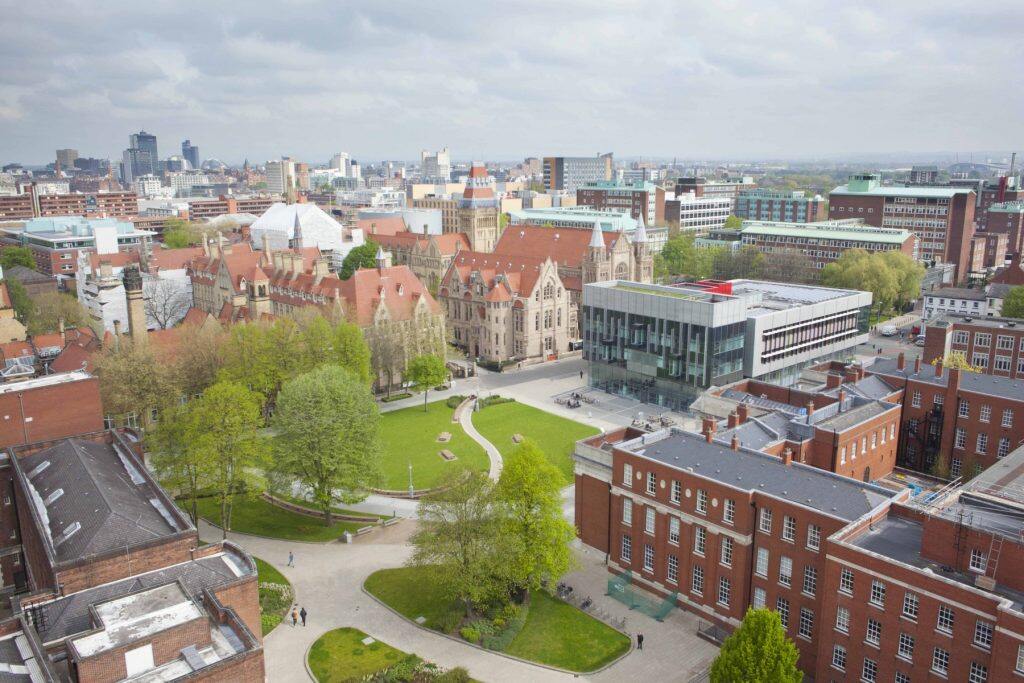The University of Manchester has retained 5th place for research power1 – the quality and scale of research and impact – in the UK government’s Research Excellence Framework (REF) 2021, the major national exercise to evaluate research activity, which was last held in 2014.
Manchester made one of the largest and broadest REF submissions in the UK, entering 2,249 eligible researchers across 31 subject areas.
Overall, 93% of the University’s research activity was assessed as ‘world-leading’ (4*) or ‘internationally excellent’. We also ranked in 10th place in terms of grade point average2, an improvement from 19th in the previous exercise, REF 2014. The Times Higher Education places us even higher at 8th on GPA (up from 17th place), as their analysis excludes specialist HE institutions. This result was built upon a significant increase in research assessed as ‘world leading’ (4*) between REF 2014 and REF 2021.
The University ranked in 8th place in terms of grade point average2, an improvement from 17th in the previous exercise, REF 2014. This result was built on a significant increase in research assessed as ‘world-leading’ (4*) between REF 2014 and REF 2021.


Researchers from the University consistently make an important contribution to solving the world’s most urgent problems, with the University ranking 9th in the world for delivering against the UN Sustainable Development Goals in the Times Higher Education Impact Rankings.
Examples of this impact highlighted in the REF include improving cancer treatment, reducing carbon emissions from shipping and aviation and shaping international development policy to reduce poverty.
Many of these case studies are now published on the University website. They provide examples of how University of Manchester research has made a positive contribution to society, culture, public policy or services, health, the environment, quality of life and the economy – with benefits felt beyond academia.
Professor Dame Nancy Rothwell, President and Vice-Chancellor of The University of Manchester, said: “These comprehensive and independent results confirm Manchester’s place as a global powerhouse of research.
“We create an environment where researchers can thrive and exchange ideas. Most importantly, the quality and impact of our research is down to the incredible dedication and creativity of our colleagues who work every day to solve significant world problems, enrich our society and train the next generation of researchers.
“The fact that our REF results are accompanied by examples of the real difference we’ve made in the world, all driven from this city makes me very proud.”
Detailed results have now been published on the University website. The University came in the top three nationally for the following subjects (Unit of Assessment by grade point average or research power):
- Allied Health Professions, Dentistry, Nursing and Pharmacy
- Business and Management Studies
- Chemistry
- Classics
- Drama, Dance, Performing Arts, Film and Screen Studies
- Development Studies
- Engineering
- Physics
- Sociology
The University had 19 subjects in the top ten overall by grade point average and 15 when measured by research power.
The REF exercise also evaluated the University’s work to provide a creative, ambitious and supportive research environment, in which researchers at every career stage can develop and thrive as leaders in their chosen field. In this category, the University achieved a result of 99% internationally excellent or world leading, making it one of the best places in the country to build a research career.
“…The fact that our REF results are accompanied by examples of the real difference we’ve made in the world, all driven from this city makes me very proud…”
-President and Vice-Chancellor, Professor Dame Nancy Rothwell
1 Research Power is calculated by grade point average, multiplied by the number of FTE staff submitted (FTE – full-time equivalent head count) and gives a measure of scale and quality. Grade Point Average (GPA) measures overall or average quality of research, which takes no account of the FTE submitted.
2 Grade point average is a measure of the overall or average quality of research calculated by multiplying the percentage of research in each grade by its rating, adding them all together and dividing by 100.
Share this release
First UK-wide evaluation since 2014 confirms University of Manchester is a research powerhouse








































